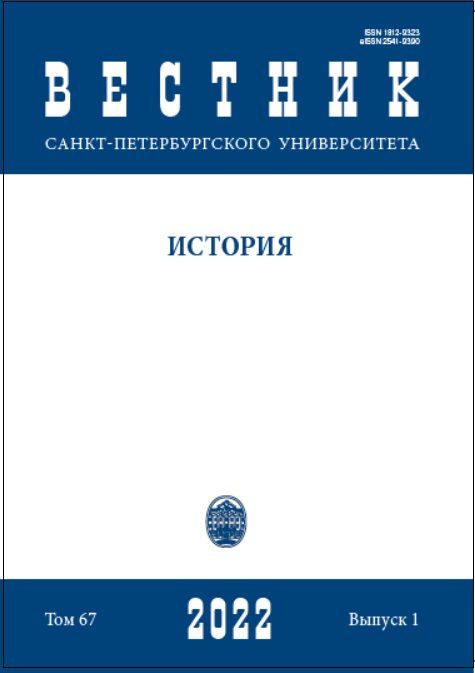Spiritual consistory in contradiction between the idea of God and the idea of the state
DOI:
https://doi.org/10.21638/spbu02.2022.104Abstract
The article is devoted to the analysis of legislative acts, archival materials and other narrative sources, on the basis of which a description of one of the church administrative and judicial institutions of the Russian Empire in the second half of the 19th and early 20th centuries is given. The principles of the formation of spiritual consistories, the mode of functioning, the specifics of cases examined by this church-judicial body are considered. According to the authors, the ecclesiastical consistories performed an administrative and judicial role in the second half of the 19th and early 20th centuries. Spiritual consistories were an important element of the system of state and legal institutions of the state during this period. The old concept of the "symphony of powers" was replaced by the principle of subordination of the church to the state. In this regard, the historical fate of the spiritual consistories turned out to be closely connected with the fate of the state and legal institutions of the Russian Empire. The historical development of the Russian Orthodox Church led to the fact that a significant part of legal issues that were of great importance for the population of the Russian Empire were controlled by church justice. The methodological principles of the research are the dialectical approach, which allows us to consider this problem in the context of a historical retrospective, the method of problem-historical analysis, the comparative legal method of legal knowledge.
Keywords:
church, idea of God, justice, spiritual consistory, registers of birth, marriage, schism, crime
Downloads
References
Downloads
Published
How to Cite
Issue
Section
License
Articles of "Vestnik of Saint Petersburg University. History" are open access distributed under the terms of the License Agreement with Saint Petersburg State University, which permits to the authors unrestricted distribution and self-archiving free of charge.





